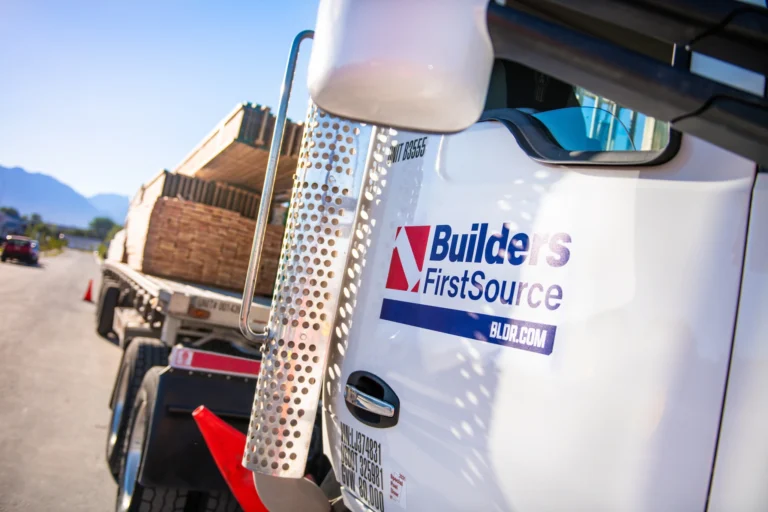
After 3 years, HS2 has completed the excavation of the Old Oak Common station underground box – a vast structure big enough to accommodate the equivalent of 300 Olympic sized swimming pools
HS2’s 1500thapprentice, Miguel, completed the excavation
Balfour Beatty VINCI SYSTRA’s construction of HS2’s new super-hub station in west London, Old Oak Common, has moved into a new phase as workers on the project completed the excavation of the huge underground box structure where high speed trains will stop.
The excavation has taken three years, after permanent construction to form the walls of the box began in June 2021. The vast underground box has a 1.12 mile fibre-reinforced concrete diaphragm wall around it, and 1.3million tonnes of London Clay has been removed from inside – enough to fill over 300 Olympic sized swimming pools.
Balfour Beatty VINCI SYSTRA joint venture (BBVS JV), working with their specialist structures contractor Expanded, completed the excavation with apprentice Miguel Jardim removing the last of the London clay from the box.
In a further breakthrough, more than 1,500 apprentices have now started work on HS2 – putting the project firmly on track to meet its target to generate 2,000 apprenticeships. Miguel, 19, a civil engineering apprentice from Surrey Quays, south east London, joined in the landmark excavation at Old Oak Common as the 1,500th apprentice to start a role helping to build HS2.
Miguel said: “It is quite an honour to be part of celebrating such a massive excavation milestone – the opportunity came along very unexpectedly!
“The best thing about my job here at Old Oak Common is all the experience I’m gaining from going out onsite daily, seeing progress coming along. I would 100% encourage others to start working on HS2, as it’s a massive project where you get to work with lots of people with similar goals. There is also a great network of people that you can learn from and connect with.”
Steve O’Sullivan, Project Director, Balfour Beatty VINCI SYTRA joint venture, said: “This achievement is a testament to the dedication and hard work of our team, and in particular the valuable contributions of our apprentices like Miguel.
“The progress here at Old Oak Common moves us one step closer to completing this key transport hub, which will enhance connectivity and drive regeneration in the area. We are excited to move forward to the next phase of construction and continue delivering this transformative project.”
The excavation was completed section by section within the box starting from the west and the east of the structure and meeting in the middle.
The box is 20m in depth and a reinforced concrete base slab up to 2m in depth is being poured throughout. 32,000 tonnes of steel rebar, assembled by hand on site, has been used in the box alongside 160 reinforced concrete columns which have been installed inside the outer wall to help support the structure.
All steel used was 100% responsibly sourced and most of the concrete used is produced by the London Concrete batching plant on site, which reuses rainwater in its mixes. Now the box has been full excavated, the team will be working to pour the final sections of base slab to fully complete the box.
Six 450m platforms will be constructed in the underground box for HS2 services. Above ground, eight further platforms are being built, and will be served by the Elizabeth Line, Great Western Mainline services and the Heathrow Express. Old Oak Common station will become one of the country’s most vital transport hubs which will be directly connected on the UK’s railway network to more than 170 destinations.
Sam Clark, Head of Delivery for HS2 Ltd, said: “The tremendous progress made by our construction team to complete the excavation of the box is an exciting milestone for the project as it signals the next phase of construction where high speed platforms will be built, as well as the station building itself.
“HS2’s Old Oak Common station will be transformational for local and regional connectivity and attract huge investment, development and regeneration to the surrounding area.”
The huge amount of London Clay removed in the excavation has been taken away from site by conveyor, reducing lorry movements on local roads. The conveyor, run by the Subcontractor Fairport, took the spoil to the nearby London Logistics Hub, managed by Skanska Costain STRABAG (SCS JV), from where it has been transported by rail to beneficial reuse sites in Kent, Warwickshire and Cambridgeshire.
Coinciding with the excavation of the box, HS2 has decommissioned the Old Oak Common station conveyor which has removed over 75,000 lorries from the road since it’s operation in November 2022. Further spurs of the conveyor being used for HS2’s tunnelling operation in the area remain in use.
HS2 has also been working with local artists on projects to reuse the London Clay. Absolute Beginners is an arts project led artist Tom James, where local young people are learning to use the clay to make objects. The group began using the clay to make a simple plate, learning how to process, manipulate and fire the clay. The group are now making a dinner service of 100 plates and 100 bowls from some of the excavated materials.
The east end of the underground box has been handed over to HS2’s London Tunnels contractor, SCS JV, who are preparing to construct HS2’s running tunnel to Euston. Two giant tunnel boring machines will be lowered into the underground box later this year, before the station team commencing building the roof structure of the super-hub station. Timings and funding for the construction of the Euston Tunnel are being confirmed with government.
When HS2 opens, Old Oak Common will be the temporary terminus in the capital. Plans to transform the wider area around the station, a former railway and industrial site, are being led by the Old Oak and Park Royal Development Corporation (OPDC).
Plans are in place to deliver 25,000 new homes and 56,000 new jobs in the area surrounding the station, transforming London’s biggest brownfield site into a thriving community for businesses and residents alike.





